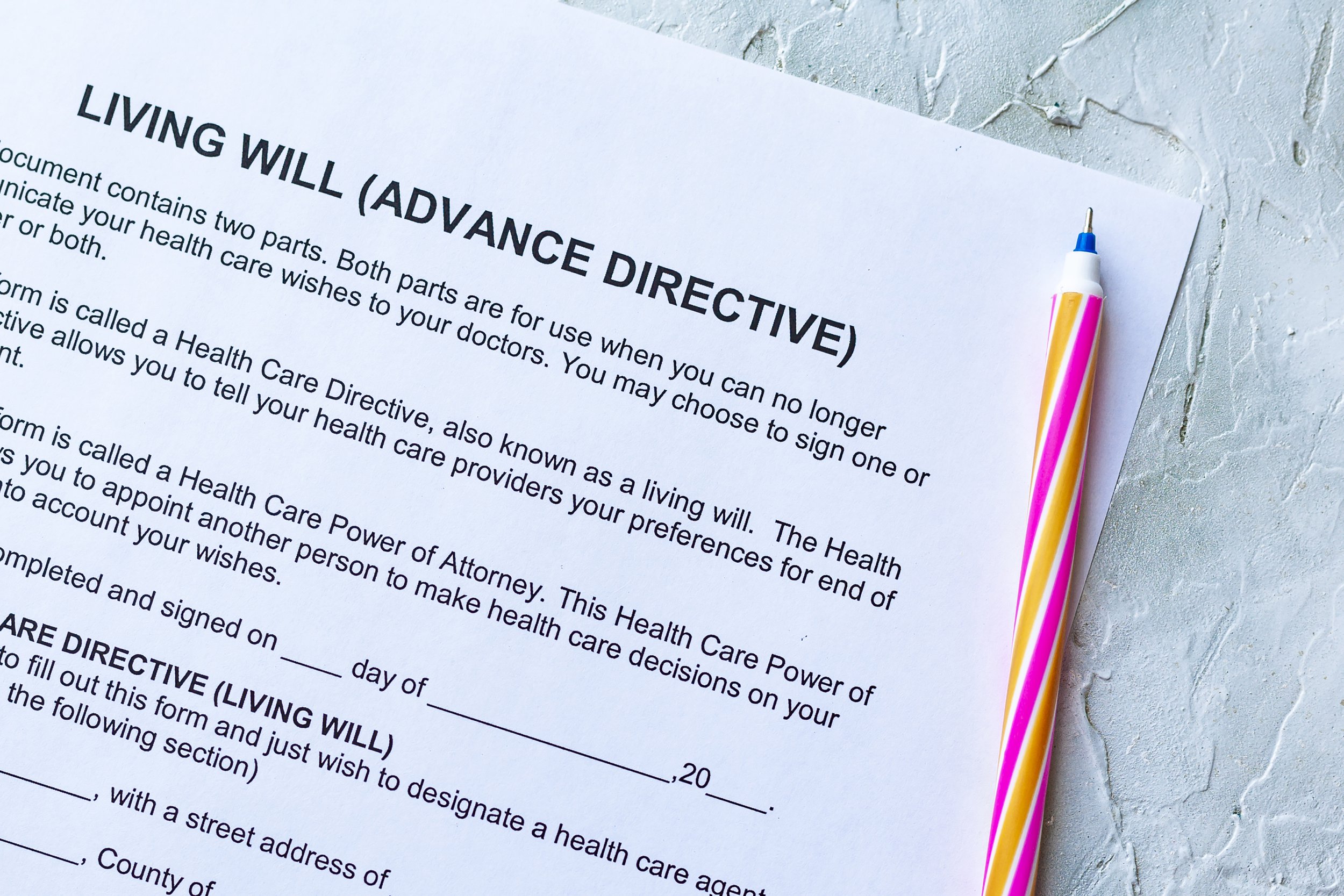The Basics of Advance Directives
While no one wants to think about being in a situation where your loved one cannot speak for themselves, that type of situation can arise. In these situations, medical personnel will turn to the loved one’s next of kin to get help making decisions on the patient’s behalf. It can help if the next of kin has a sense of what their loved one would want in such a serious medical situation. Making your loved one’s wishes known in advance is known as an Advance Directive.
Advance Directives are legal forms that you create, working with your loved one. These legal forms are designed to clarify what your wishes would be if you could speak for yourself, even if you cannot. These forms are available free of charge and filling out the basic documents do not require legal assistance. (Many people complete these forms when doing other estate planning, so a lawyer may help in that case.) Be aware there are some state-specific requirements you will need to be aware of so be sure to ask about making sure you get “your state’s” form.
The Basics of Advance Directives
There are two kinds of Advance Directives to complete: Living Will and Healthcare Surrogate. Free versions of both are available from the state Office of Attorney General.
Living will
A living will goes into effect if your loved one is unable to communicate their wishes/decisions. It outlines and identifies What type of care your loved one WOULD want? What type of care would they NOT want?
Two witnesses are required; you can obtain the documentation here: myfloridalegal.com/LivingWill.pdf, and learn about “Frequently Asked Questions” about living wills here.
Designated health care surrogate/Power of attorney for Health Care
This document identifies who* your loved one would want to make decisions for them in the event they cannot speak for themselves. This can be very helpful since the Living Will may not cover any/all questions that may arise. Your designated surrogate will be able to confer with the medical team in making decisions that fall outside what was identified in the Living Will.
Two witnesses are required; you can obtain the documentation here: https://powerofattorney.com/florida/
*It is generally advised to have a primary individual named and a back-up named. It is NOT advised to have more than 1 person serving at a time.
5 Wishes*
This is an alternative document that is legal in FL and most of the other U.S. states, It is called 5 Wishes, and it contains both Living Will and Healthcare Surrogate information. It is considered a valuable tool for providing guidance to discussing and documenting your wishes in these difficult areas.
You can find the documentation here: fivewishes.org/shop/order/product/five-wishes-advance-directive
*There is a small fee for this document
Keep in mind:
You are NOT required to complete Advance Directives
You CAN CHANGE your Advance Directives at any time
Who Needs to Know About Advance Directives?
Keep a copy of the document yourself, and also give to any other Healthcare surrogate for your loved one
Keep a copy in your loved one’s home, in a file at home clearly marked Healthcare Emergency Information
Keeping a digital file available 24/7 online or on a phone is best
You should bring a hard copy of your Advance Directive documents to the hospital for each of your loved one’s admissions. Hospitals and nursing homes are now required to ask patients if they have any type of Advance Directive. (You will be accepted for care whether or not you have an Advance Directive.)
Give a copy to the Primary Care Physician or any Specialty Physicians seen regularly
If a lawyer helped create the documents they will have a copy. Keep their information in your loved one’s Healthcare Emergency Information file.

